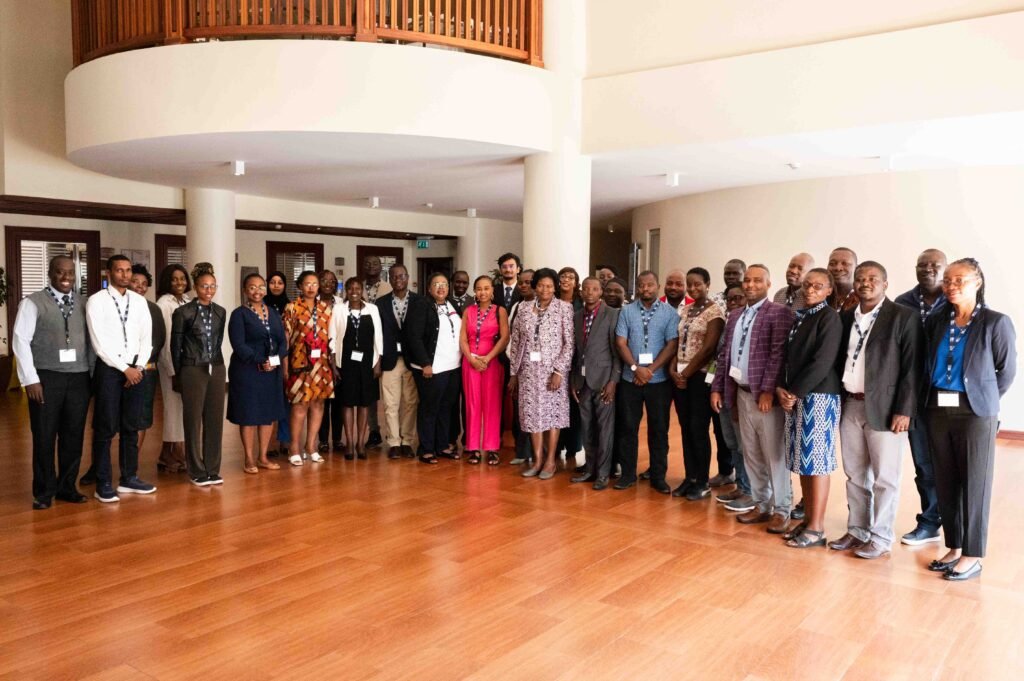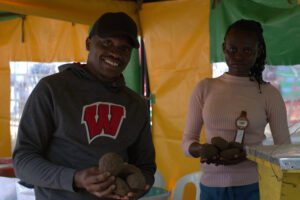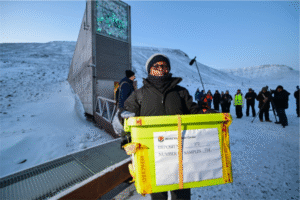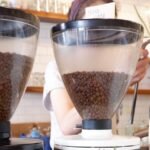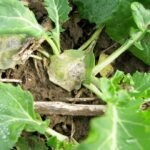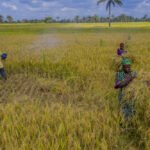United for Science: 28 early-career researchers from 16 African nations gather in Nairobi for the 2025 TWAS Skill Building Workshop, shaping the future of research across the continent. Photo Credit: G. Ortolani/TWAS
By Murimi Gitari October 21, 2025 — The World Academy of Sciences (TWAS) hosted its 2025 Skill Building Workshop in Nairobi on Tuesday, bringing together 28 early-career scientists from 16 countries across Sub-Saharan Africa.
The three-day event is part of TWAS’s broader mission to enhance research capacity and foster scientific collaboration across the continent.
Organized under the Seed Grant for New African Principal Investigators (SG-NAPI) Programme, the workshop is supported by Germany’s Federal Ministry of Research, Technology and Space (BMFTR) with the aim of equipping researchers not only with funding but also with the soft skills necessary to thrive in global scientific communities.
Participants hail from Benin, Cameroon, Djibouti, Ethiopia, Gabon, Ghana, Kenya, Malawi, Mauritius, Namibia, Nigeria, Somalia, Tanzania, Uganda, Zambia, and Zimbabwe. Through expert-led sessions, they explored topics such as scientific writing, responsible use of artificial intelligence, science communication, mentoring, and trans-disciplinary research.
“This workshop is a unique opportunity to empower emerging researchers and build a stronger, more connected scientific community in Africa,” said TWAS President Quarraisha Abdool Karim. “TWAS is proud to support African scientists in advancing research that addresses national and regional development challenges.”
Delivering the keynote address, Prof. Catherine Ngila—TWAS Fellow and Executive Director of the Africa Foundation for Women and Youth in Education and STI—offered a candid assessment of the continent’s research landscape. “Universities have become glorified high schools due to lack of research being done,” she said, stressing the need for revitalized academic environments and proper infrastructure.
Prof. Ngila highlighted Africa’s underinvestment in research and development, noting that the continent allocates just 0.45% of its GDP to R&D—far below the global average of 1.7% and the African Union’s target of 1%. “Africa has less than 100 researchers per million people,” she added. “This impacts economic and societal progress on the African continent.”
She urged greater support for African researchers to enhance their global visibility and impact. “We must support our scientists if we want to see Africa thrive in science and technology,” she said. As a Visiting Professor at the University of Johannesburg’s Chemical Sciences Department, Prof. Ngila called for coordinated efforts to improve funding mechanisms and elevate science’s role in policy and development.
TWAS Associate Programme Officer Payal Patel echoed the importance of equipping scientists with complementary skills. “They are great at their scientific research, but we also need to teach them certain skills that they need as scientists to excel and become stronger scientists,” she said.
Among the critical topics addressed was publication ethics. Patel warned of the risks posed by predatory journals. “The minute you hand it over to a predatory journal, they (scientists) have lost it,” she cautioned. “If the scientific committee sees a predatory journal, they will immediately cut off the scientist and say, ‘No, this person is publishing in predatory journals.’”
The workshop also serves a broader purpose: cultivating a sustainable pipeline of scientific leadership across Africa. “We want them to take this back and pass it on to the future generations… we are slowly building a generation of strong academicians, of strong scientists,” Patel said.
Nairobi was chosen as the host city to reflect regional diversity and scientific strength. “Kenya has a large base of scientists… science is already quite strong here,” Patel explained. “Last year, we were in Dakar, Senegal, which is in West Africa. This year, we wanted to come to East Africa.”
TWAS’s commitment to inclusivity was evident in the selection of participants. “We have people from Djibouti, Ethiopia, Ghana, Gabon—some very minority countries within Africa,” Patel noted.”
Gender balance also plays a key role in the program’s design. “Kenya being a strong country overall, we get a large number of strong female applicants,” she said. “So a lot of the times, many of our Kenyan awardees are probably female… it allows us to get the diversity that we need in the final list of awards.”
The SG-NAPI grant program provides up to $68,000 per scientist, primarily for laboratory equipment and reagents. Additional support includes funding for MSc students, mobility programs within Africa and Germany, and full coverage for international conference attendance.
In the past three years alone, TWAS has awarded over 120 SG-NAPI grants to African scientists, representing millions of dollars in research investment. “If I look at our research grants program funded by the Swedish government… at least 70% of that is Africa,” Patel said.
While long-term impact takes time to measure, Patel is confident in the short-term results. “We have scientists publishing in journals within the Nature group… and we cover the costs of the publications,” she said.
Ultimately, TWAS aims to combat brain drain by investing in scientists committed to building their careers at home. “If they have the opportunities, if they have the funding, they are willing to grow and they are willing to remain in Africa,” Patel concluded. “That is what we’re trying to tackle with this program.”
The programme helps early-career researchers who have obtained their PhD abroad and have recently returned to Africa, or will shortly return to an academic position in their home country. Grants up to USD 67,000 are awarded to promising high-level research projects in agriculture, biology, chemistry, Earth sciences, engineering, information computer technology, mathematics, medical sciences and physics carried out in African countries that TWAS has identified as lagging in science and technology.
The awarded projects have a significant transformative potential and are carried out in one of the eligible countries. To date, the programme has launched four calls, and assigned 121 grants.
TWAS which was founded in 1983 and inaugurated in 1985, supports sustainable prosperity through research, education, policy, and diplomacy.
With its partners, it has graduated over 1,230 PhDs and supported more than 980 postdoctoral fellowships. The Academy also bestowed over 1,200 prizes, awarded over 2,800 research grants, trained over 750 individuals in science diplomacy, and supported over 1,400 exchange visits.

